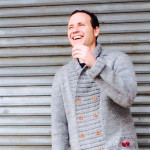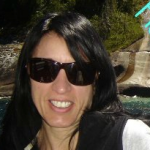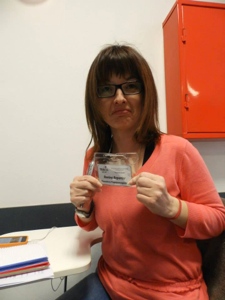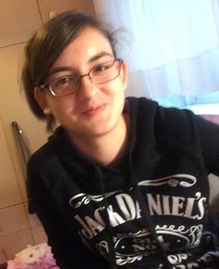 by Kevin Stein
by Kevin Stein
It’s a cold early spring day. I’m having coffee with Sachi, one of my former students. She has chosen a traditional Japanese house which was recently converted into a cafe. The floors are Japanese style straw mats. The coffee is served in bone-china so thin the light actually shines through the sides of the cup. From the large front window, we can see deer grazing in the park across the road. Sachi is wearing a sweat suit. She is, as always, smiling and relaxed. I taught her for 6 years in my advanced learner class. When she first came to my class, she was a medical student. Now she is an attending physician at one of the largest hospitals in Osaka. She is an accomplished member of the Japanese calligraphy community, a pianist, and is currently studying the art of coffee roasting. The following interview has been lightly edited for brevity and clarity.
Kevin: So what do you think of the coffee?
Sachi: It’s good. It’s a light roast, but it still manages to have a nice deep note of chocolate and a nutty quality. That’s quite difficult to get.
Kevin: You’ve had a lot of teachers over the years, can you think of three teachers who are memorable?
Sachi: Actually, I can think of many teachers who are memorable. But it’s not just the teachers. It’s the whole class. When I remember a teacher, I remember a student or two and a specific lesson as well. The teachers who I have a hard time remembering is more like a big blank in my English learning. I can’t remember the classes at all.
Kevin: That’s interesting. Do you think there is some kind of connection between good teaching and this kind of bigger picture you have of the whole class experience?
Sachi: I think so. I think a good teacher is able to make all kinds of things stand out. The best teachers I have had really give the students a chance to express themselves. So that is probably why I remember my classmates in those classes. Of course it just might be my tastes. Maybe I like a teacher who doesn’t have to have all the attention all the time.
Kevin: When you were one of my students, you always took time to ask other students what they thought in class. You were an excellent listener. What do you think about a teacher’s responsibility to teach and a teacher’s responsibility to listen.
Sachi: You know, I’m a medical doctor, and when I first started working, I thought a big part of my job was to tell patients what to do to get healthy. Which is a very typical novice doctor’s mistake. Now I know that the most important part of my job is to listen to my patients. They often know what is wrong with them. But I have to help them find the words to tell me about it. In the same way, I want my English teachers to let me speak and to let me find the words to say what I want to say. When I am a student in class, I also want to see and hear how other students express themselves. It is an important part of my learning. So I think it is a great thing when a teacher can be comfortable not talking. Of course, I love to talk, too. So sometimes I think a teacher needs to find a way to tell me to be quiet as well.
Kevin: I’m just wondering, do you think there are any other similarities between being a good doctor and being a good teacher?
Sachi: In Japanese, we use the same word for both teachers and doctors. The Chinese kanji means, “one who has lived in advance.” I take this to mean that a teacher is someone who has traveled a little further down the road that the student is on. If the student is willing, a teacher can help them take the next step a little more quickly or smoothly or enjoyably. But it is still the student who has to take that step. When you are treating a patient, it is often the same. I am an orthopaedic doctor and a lot of what I do involves patients taking special physical therapies. I might offer the treatment, but it is the patient who has to do the work.
Kevin: What happens when they just don’t do the work?
Sachi: (laughs) Are you talking about how our class never did their homework? Seriously, there is nothing I can do. But there are things I shouldn’t do. I can’t make the patient feel like a failure. If I do that, they will never go to therapy. And maybe they will just avoid the hospital. I can listen and make a different suggestion.
Kevin: Do you have any advice for teachers?
Sachi: In medicine, even in my field, which is orthopaedics, we are starting to realise that there is no such thing as illness or injury outside of a specific context. There are no living organisms which develop independently from their environment. We are focusing more and more on the environmental factors that impact our patient’s health. What is the patient’s diet at home? What is the noise condition of the neighbourhood? Is it keeping a child awake late at night, interfering with their development? Is there anything we can do to help the family mitigate these circumstances? I think learning and health are probably similar in this way.
Kevin: So you are saying that the teacher has to be aware of a student’s wider situation? That we have to understand all the factors that impact their learning?
Sachi: Not ALL the factors. But some of the factors. And more importantly, I have to help my patients learn to see the factors that impact their health even when I am not around. This is something I am just learning to do. My very best teachers helped me do this with my English learning.
Our coffee cups are empty. The sky is getting dark and the deer have all left the park across the way. Sachi looks out the window.
Sachi: Maybe I should start taking English classes again. You know any good teachers?



 One Student’s Voice
One Student’s Voice 



 I have known Helen since kindergarten. Now she is almost 15. We have grown together, year by year, influencing each other. Helen is a huge Harry Potter fan and she has read every Potter book there is, some in Greek and some in English. The impressive thing was that although her level back when she started them in English was not so high, she insisted on reading the book with a dictionary next to her. It took her a lot of time to finish, but she showed real determination to succeed and even gave me motivation to go on as a teacher. She is a very bright young lady, hard working, strict with herself, but also very sensitive. I imagine her in the future as a doctor or perhaps a very knowledgeable scientist like her favourite character from Big Bang Theory, Sheldon Cooper, who is both a genius, and a funny person in his own way. I find myself wondering sometimes if she is actually the teacher and I am the student. I hope you enjoy what she has to say.
I have known Helen since kindergarten. Now she is almost 15. We have grown together, year by year, influencing each other. Helen is a huge Harry Potter fan and she has read every Potter book there is, some in Greek and some in English. The impressive thing was that although her level back when she started them in English was not so high, she insisted on reading the book with a dictionary next to her. It took her a lot of time to finish, but she showed real determination to succeed and even gave me motivation to go on as a teacher. She is a very bright young lady, hard working, strict with herself, but also very sensitive. I imagine her in the future as a doctor or perhaps a very knowledgeable scientist like her favourite character from Big Bang Theory, Sheldon Cooper, who is both a genius, and a funny person in his own way. I find myself wondering sometimes if she is actually the teacher and I am the student. I hope you enjoy what she has to say. Throughout my years as a student I have come across many types of teachers but only a few have fulfilled my expectations. Some were very meticulous while others did perfunctory work. There was also a special category that possessed ”magic powers” like a spell that made everyone sleepy and a special potion, which made a subject indescribably strenuous. So all these thoughts made me wonder, what makes an adequate teacher?
Throughout my years as a student I have come across many types of teachers but only a few have fulfilled my expectations. Some were very meticulous while others did perfunctory work. There was also a special category that possessed ”magic powers” like a spell that made everyone sleepy and a special potion, which made a subject indescribably strenuous. So all these thoughts made me wonder, what makes an adequate teacher?